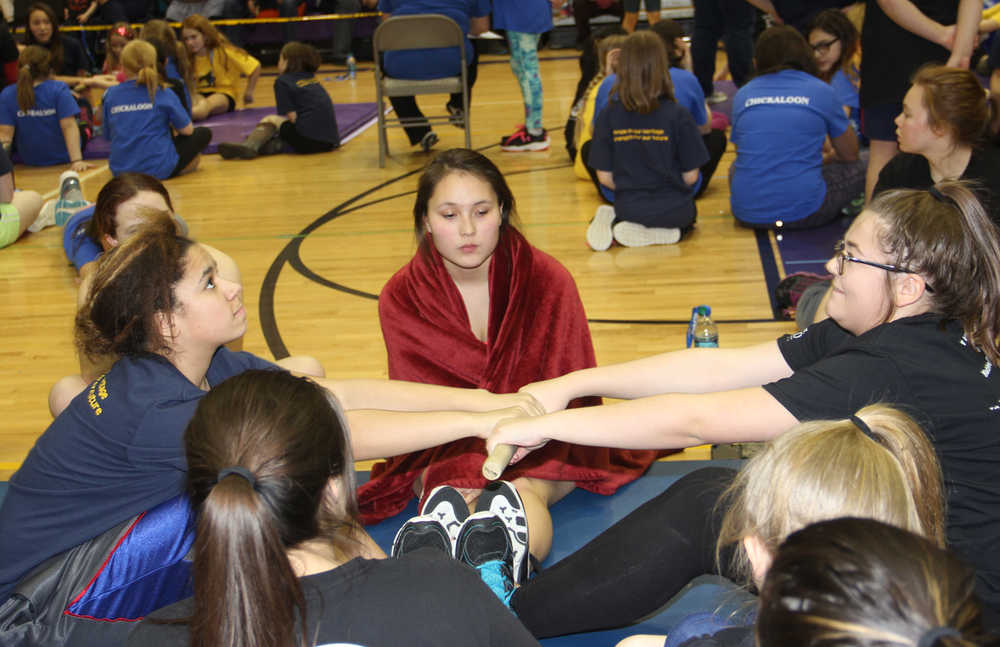For many years the Native Youth Olympics on the Kenai Peninsula have done more than preserve Native Alaskan cultural traditions, but has made everyone more aware of our host culture on the Peninsula. The first NYO started in the spring of 1971 was organized by Sarah Hanuske, a coordinator for the Boarding Home Program in Anchorage for those students who attended the boarding school at that time. This year’s regional NYO’s were hosted once again by the Kenaitze Indian Tribe and were the kick-off for the Peninsula Winter Games. Teams from as far away as Chickaloon and Wasilla gathered at Kenai Middle School for what according to Michael Bernard, Kenaitze Tribe’s cultural after school youth program coordinator seemed to be the best attended NYO’s ever held on the Peninsula, “These games are thousands of years old and were used not only for something to do during the long winters but also as a means of teaching and perpetuating culture to the next generation. Since we’ve been hosting these games the kids have practiced very hard to strengthen not only their muscles but their minds. Many of these games were developed from survival techniques and skills that were necessary in order to hunt, fish and survive,” explained Bernard. The Indian stick pull, where two seated contestants clasp a greased stick and pulls to the opponent is moved simulates pulling a fish out of the water regardless of the size of the fish. Indeed many smaller contestants prevailed against their larger counterparts. The popular high kick said Bernard was actually an ancient means or arctic communication, “It was a way of signaling back to villages over long distances whether or not you’d had a successful hunt. If the hunt was successful obviously you needed family and friends to come and help harvest whatever was killed. So in the day before cell phones it was a way of letting the village know they needed assistance,” he said.
Unlike many western sports with an emphasis on winner and beating your opponent, NYO’s have a tradition of the winner teaching his opponent how to be better so that he can beat him or her next time, “That goes back to the purpose of the ancient games to help one another survive and do their best. It’s something you won’t find in many other sports, the competitors, coaches and parents all get out and help the athlete with whatever techniques they know of because we want the kids to improve and get better and we want them to share their knowledge and mentor each other and become good friends and sportsmen and women. If we support and help each other we live and survive together,” said Bernard.

